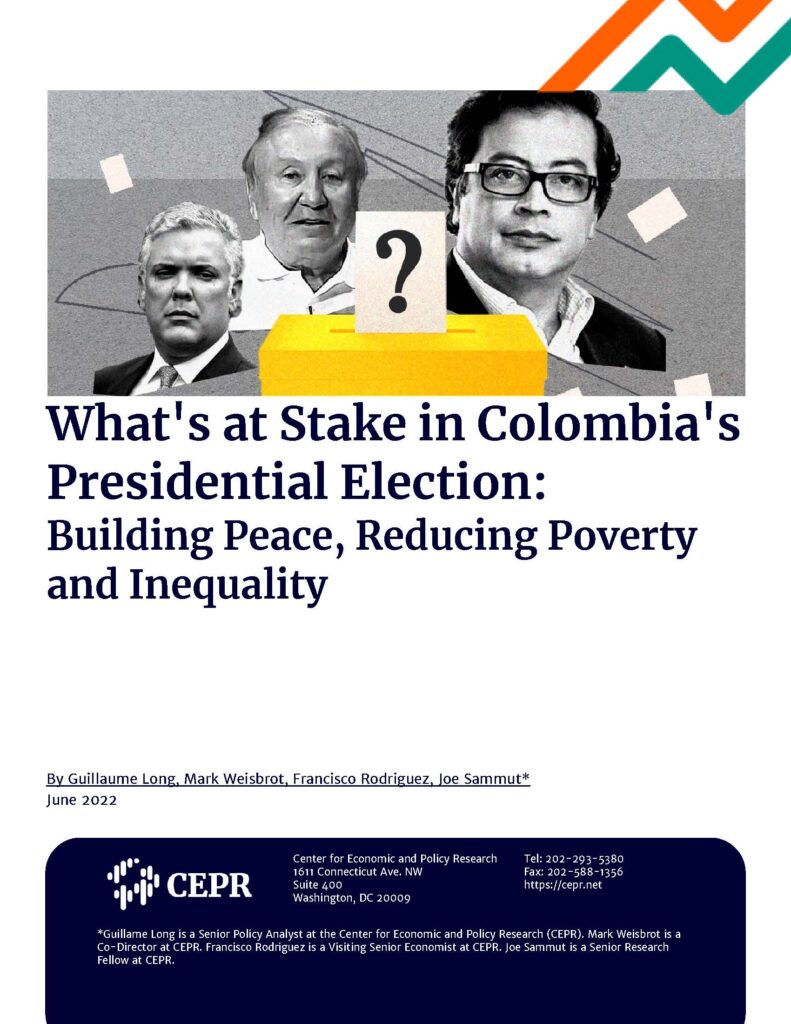Notes / Observatoire électoral de l’Amérique latine
15 June 2022
What’s at Stake in Colombia’s Presidential Election: Building Peace, Reducing Poverty and Inequality

This paper looks at some of the most important issues that could be decided in Colombia’s June 19 presidential election runoff. The vote is seen by many observers as potentially historic, in large part because it is the first time that a progressive candidate has a serious chance of winning the presidency.
Progressive candidate Gustavo Petro took a large lead in the first round of the elections with 40.3 percent of the vote, to 28.2 percent for second-place finisher Rodolfo Hernández. Hernández, a former mayor of the city of Bucaramanga, is generally described as a right-wing populist with an anti-establishment appeal to voters fed up with what they see as decades of terribly corrupt and ineffective government. He is currently very often likened to Donald Trump.
Hernández’s political alliance, the League of Anti-Corruption Leaders (Liga de Gobernantes Anticorrupción) is relatively unknown, and there is much speculation about what he represents. Petro, by contrast, and his coalition — the Historic Pact (Pacto Histórico) — are widely known.
Colombia faces serious long-term socioeconomic problems that could form the basis of this rebellion at the ballot box that brought two “anti-establishment” candidates to the June 19 runoff. The country’s GDP per capita, or roughly income per person, was about $15,424 in 2019, before the pandemic. This is in the middle of the distribution for Latin American countries. But Colombia has much worse poverty and inequality than most of the region — and by some measures of inequality, all of the rest of the region…

